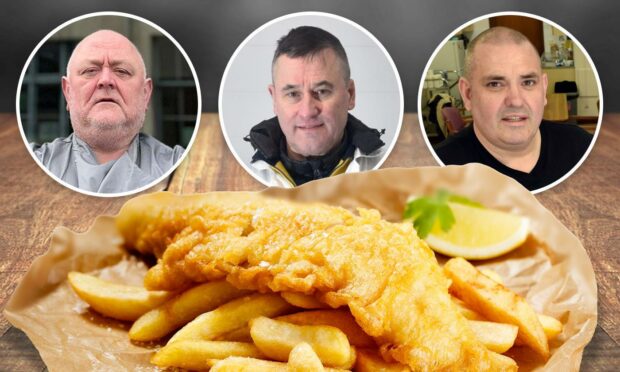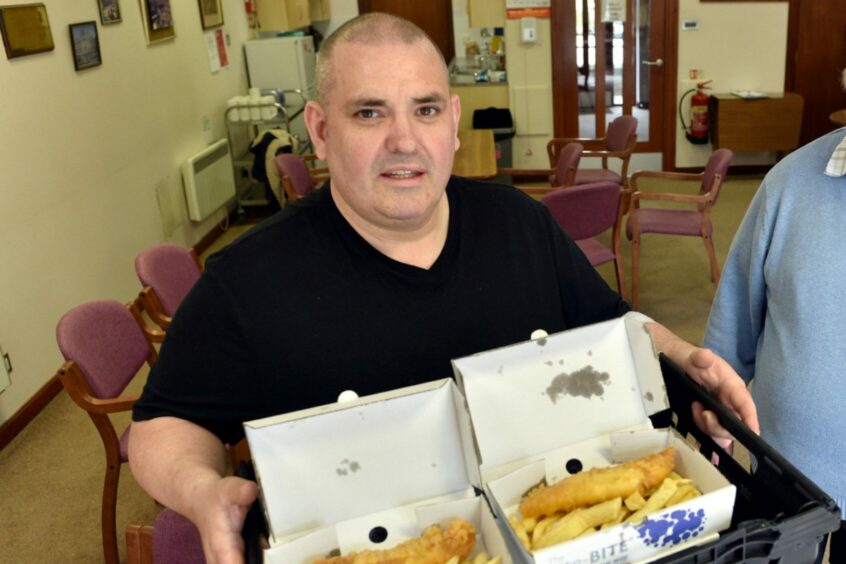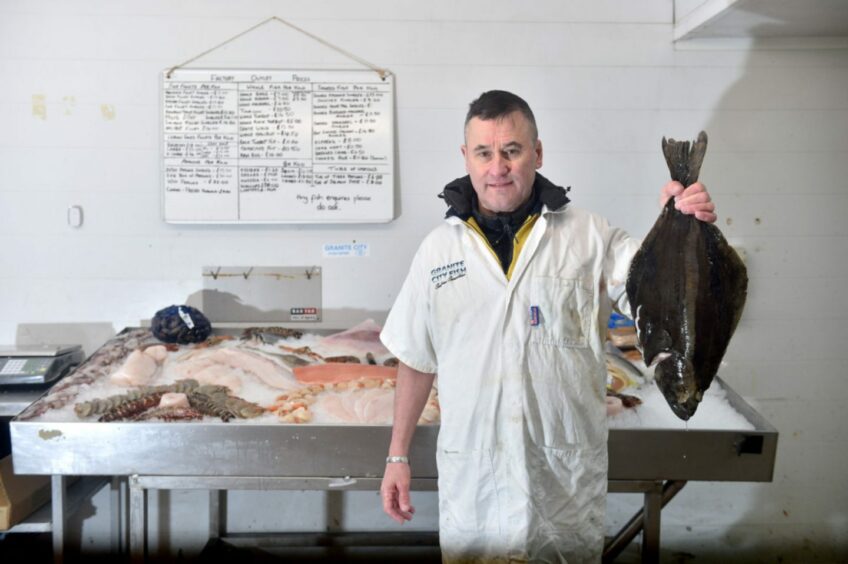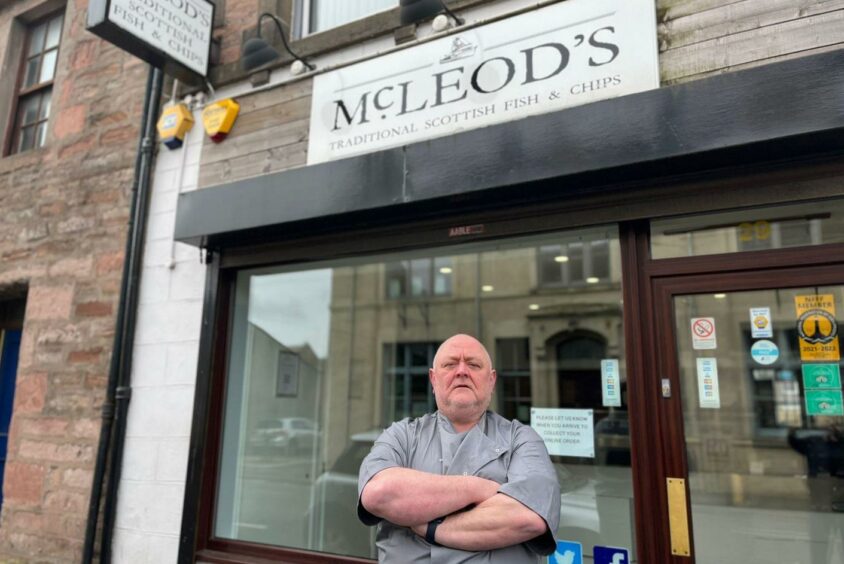Our enduring love for haddock will ensure chip shops in the north and north-east continue to serve the fish despite rising prices.
While Glasgow turns to cheaper fish such as whiting, chippers in Aberdeen and Inverness have said customers would refuse anything less than haddock.
Cod, which is popular in England, also gets short shrift from picky locals.
“Cod’s too expensive at the moment and whiting just wouldn’t go down well in Aberdeen,” says Kevin Carr, owner of chip shop Fish ‘N’ Hook on Aberdeen’s Rosemount Place.
“I know chip shops in Glasgow use it but I wouldn’t go down the way of whiting.”
He adds: “I’ve put on cod a few times but there was never a lot of portions – it is always haddock.”
It’s the same story at McLeod’s Fish & Chips in Inverness.
“Haddock is what everyone wants,” says owner Dave McLeod. “Some of the English tourists will ask for cod and chips but they are few and far between.
“I tried hake once but I had to sell it cheap to get rid of it.”
Rising haddock prices put chip shops on alert
Around the UK, chip shops are reportedly dropping haddock from their menus as prices soar.
And North Sea fish, which traditionally supply north and north-east chippers, have been subject to the same price pressures.
Mike Park, CEO of the Fraserburgh-based Scottish White Fish Producers Association, says one cause of higher prices is a lack of on-shore filleters at north-east harbours. Trawlers have lowered catch volumes because fewer fish can be processed when landed.
Meanwhile, Edward Fletcher, managing director of Aberdeen fishmonger Granite City Fish, blames the high cost of fuel that has made trips out to sea unprofitable for many fishermen.
According to Edward, daily landings at Peterhead port’s fish market have been down to about 500 boxes of fish a day compared to the usual average of about 3,000.
Brexit has blocked fishermen from fishing in some European waters
“Basically, what’s happening is there just hasn’t been a huge amount of fish landing,” says Mary Johnston, company secretary at Aberdeen fish merchant Skateraw Fisheries, which supplies many of the city’s fish and chip shops.
Mary points the finger at Brexit, which has blocked fishermen from fishing in some European waters. That has led to a decrease in the right size of fish used in fish suppers.
“There is a certain size that the chip shops are looking for, and that has not been landing in the usual volumes,” she Johnston explains. “Also, the weather has not been great.”
But despite the challenges, which have raised the price on a box of fish from £50 to anything up to £100, Mary says the chip shops her company supply are loyal to haddock because of their customers.
“People don’t even really want to eat cod here because it’s more of an English fish,” she explains.
“Trying to get them to go for an alternative also doesn’t work. Tell them it’s whiting and chips and they’ll say: ‘What’s whiting? I don’t want that. I just want my haddock’.”
Shrewd locals keep haddock in place
Kevin, from Fish ‘N’ Hook, says customers in the north and north-east are savvier than their southern peers when it comes to fish quality. It is a trait that will ensure haddock remains king in the north.
The trick, however, is to convince customers they need to pay more for it.
“The price of a fish supper is definitely going to go up to £10,” Carr says.
Meanwhile, price pressures are pushing chippers in Inverness to use fresh Norwegian and Faroese haddock, says Dave, who claims McLeod’s Fish & Chips is the only shop in town to still use Peterhead-landed fish.
The price he pays per fillet has gone up from £1.50 a fillet to about £2.20, and it could be about to go higher.
Yesterday, the UK Government hiked import tariffs on Russian white fish by 35% as part of a package of measures in retaliation to the Ukraine invasion.
Russian-caught frozen-at-sea haddock is widely used in chip shops, so the tariff could further increase demand for fish caught by other nations, and raise prices again.
But the challenges won’t deter Dave from using fresh Scottish haddock.
“[The fish is] on our doorstep,” he says. “I don’t see the point of using Russian or Norwegian when there’s Peterhead down the road.”



